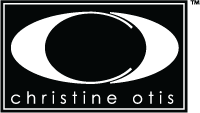by Christine Otis
Just days before the Pennsylvania primary, with the Keystone state living up to its name, Sen. John Kerry spoke with PW to give one more push for Barack Obama’s nomination. He talked about what Obama can do for Philadelphia, and how his gut instinct about the young senator from Illinois proved right.
You chose Senator Obama as the keynote speaker for the 2004 Democratic National Convention, which catapulted him to national attention. And after your endorsement in January, he went on to win the South Carolina primary. Would you say you were Obama’s catalyst?
“No, he’s been his own catalyst. I think he’s done a commanding job of inspiring people. Obviously I had the opportunity to be helpful to Obama. He represents a different way of talking about things and getting things done, and I think people want change. You look at the economy today, and most major issues that affect people’s lives—health care, schools, trade, competition with other countries, science, technology, global climate change—on all of these issues he’s laid out a very exciting plan .”
What initially drew you to him?
“When I was out in Chicago I campaigned with him. I watched and got a sense of him, listened to him, got to know him. I was impressed by what I saw. I felt this was someone with leadership skills on the points that were important. I decided his would be a terrific message to have at the convention. I was right, and I think I was proved right. I had a sense about him. It was one of those gut things you have sometimes in life and my gut responded very positively. “
Philadelphia’s unemployment rate is above the national average. What incentives do you believe Obama will use to boost our economy?
“First of all, very importantly, he intends to stand up to, and has already stood up to powerful special interests that seem to dominate Washington and the economic choices we make. A lot of powerful lobbying interests have deterred us from making choices we have to make on energy independence, green products, trade and other things. I think Barack has shown a willingness to take that on. He doesn’t accept money from lobbyists. He was the only candidate who did that, and I think that’s a powerful message.
“Secondly, he’s laid out a specific economic agenda that would be particularly helpful for cities like Philadelphia and Pittsburgh. He lowers the taxes for the middle-income average Americans by $1,000 per person for a tax break. He’ll lower health care costs per person by $2,500. He’s laid out a plan on how to deal with premiums more effectively and cut costs without reducing quality or choice. For seniors who earn $50,000 or less, he wants to eliminate the income tax. He wants to end the tax breaks that companies get for shipping jobs overseas. That’s something I talked about four years ago and it’ s still there and it needs to go. With No Child Left Behind, the schools [need to] get the billions of dollars they’re supposed to be getting, which George Bush has given to the wealthiest of Americans. We’re going to change that.
“And he wants to rejuvenate neighbors. He has a program called Promise Neighborhoods for communities with high poverty and high crime. It’ll work with community and business leaders, and [also] help mentor kids.”
Senator Obama has supported funding for local law enforcement with the Community Oriented Policing Services (COPS) and the Combat Meth Act. What proposals and resources will he use to assist Mayor Nutter in decreasing Philadelphia’s homicide rate?
“He wants to restore the COPS program. I led the fight in 1994 to put 100,000 cops on the streets in America. And one of the reasons I support Barack Obama is that he understands you’ve got to be able to provide safety for people in their community. When Barack was a street organizer in Chicago and when he was in the state senate he worked very closely with communities to help dropout kids get back in school, to get people off the streets during the summer.”
